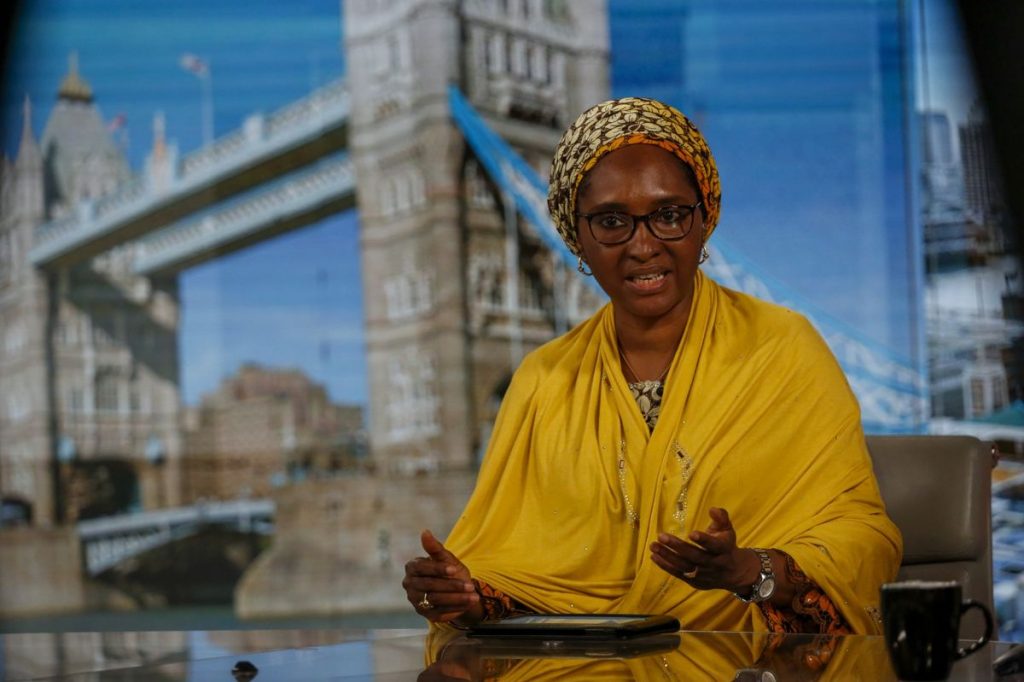The Minister of Finance, Budget and National Planning, Zainab Ahmed has said the country is planning to reduce its debt service revenue ratio and the government is not planning to explore the bonds market in 2023.

She stated this in an interview with Bloomberg TV at the ongoing World Economic Forum in Davos, Switzerland. According to her, the Federal Government is working to reduce its debt servicing to revenue ratio to from 80 per cent in 2022 to 60 per cent in 2023.nAccording to the Debt Management Office, the country’s public debt rose to N44.06tn in the third quarter of 2022.
She said, “We are sustainable in our debt trajectory. We have made our plan to make sure we are able to consistently service our debts. And by the way, we are also exiting fuel subsidy which is a huge cost. “I am part of the contributors to where we are in terms of the debt stock.
‘’So, once we pull the fuel subsidy out, production of crude oil increases, and then we sustain the improvement we have, put in place in terms of nonoil revenue, then we should be able to come down to 60 per cent to debt to revenue ratio.

In 2023, we are not in the bond market. If we are able to get back to the rates of early 2021, then we can consider going back to the bond market. But we are consistently monitoring the bond market, we are monitoring the performance of our bonds, and when it get to that comfortable level, we will explore it.”
The Federal Government has recorded a revenue shortfall of N14.28tn under the regime of the President, Major-General Muhammadu Buhari, (retd), according to data from the Budget Office of the Federation.
The data was obtained from the budget implementation reports for 2016, 2017, 2018, 2019, 2020, 2021, and 2022 (January to November). In the period under review, the Federal Government projected N43.05tn as revenue to fund its budget but made only N28.77tn (66.83 per cent of expected revenue).
In 2016, the Federal Government’s projected revenue was N3.86tn, but it realised only N2.95tn. In 2017, revenue projection was N5.08tn while revenue realised was N2.66tn. In 2018, revenue projection was N7.17tn, while the government and realised N3.87tn. In 2019, revenue projection was N6.99tn and realised revenue was N4.12tn. In 2020, the Federal Government’s projected revenue was N5.84tn, but actual revenue amounted to N4.04tn.

In 2021, revenue projection was N6.64tn, actual revenue was N4.64tn. In 2022, projected revenue was N7.48tn, actual revenue amounted N6.49tn. The revenue shortfalls echoes concerns by the Minister of Finance, Budget, and National Planning, Zainab Ahmed, over the government’s inability to generate adequate revenue. Nigeria relies on oil for the majority of its revenue and in recent times, this revenue source has been impacted by low production and subsidy payment.















